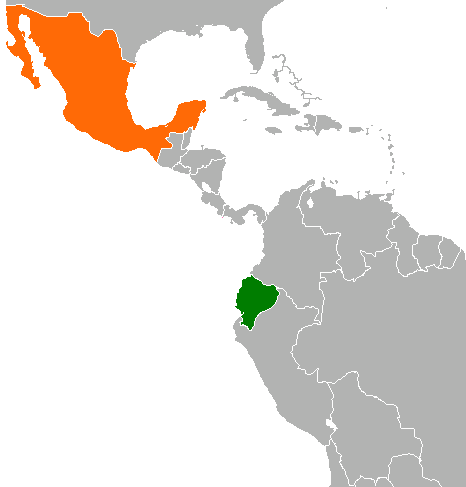Mexico vs Ecuador: Understanding the Ties Between Two Diverse Nations
In a world driven by globalization and interconnectedness, the relationship between Mexico and Ecuador serves as an intriguing case study, highlighting the cultural, economic, and historical ties that bind these two diverse nations. The question often arises: what are the key similarities and differences that define these two Latin American countries? This blog post will explore these intricate relations and provide valuable insights into the unique aspects of Mexico vs Ecuador.
The Historical Context of Mexico and Ecuador
To fully appreciate the relationship between Mexico and Ecuador, one must first delve into their historical contexts. Mexico, known for its rich Aztec heritage and colonial past, has evolved into one of the largest economies in Latin America. In contrast, Ecuador, while also rich in indigenous culture, has its own unique history shaped by its geographical diversity and colonial influences.
According to Wikipedia, both nations have navigated their colonial histories, but their paths diverged significantly post-independence. Ecuador gained independence from Spain in 1822, following a series of liberating movements, while Mexico established its independence in 1821. These events set the foundation for distinct political landscapes and cultural identities.
Cultural Ties: Festivals and Traditions
Mexico and Ecuador share a vibrant tapestry of traditions and celebrations, though each country’s cultural expressions are uniquely their own. Mexican culture is characterized by its colorful festivals such as the Day of the Dead and Cinco de Mayo, deeply rooted in indigenous practices and colonial history. Ecuador, on the other hand, boasts festivals like Inti Raymi, a celebration honoring the sun god, and the Full Moon Festival, which showcases the rich cultural diversity of its indigenous communities.
The culinary landscapes of both countries also provide an exciting realm of exploration. Mexican cuisine, recognized by UNESCO as an Intangible Cultural Heritage of Humanity, features bold flavors, spices, and dishes such as tacos and mole. Ecuadorian cuisine, while also rich in flavors, often includes ingredients such as potatoes and seafood, with dishes like ceviche and locro being regional favorites. These culinary delights reflect the geographical and cultural factors unique to each nation.
Economic Overview: Trade Relations
The economic relationship between Mexico and Ecuador has evolved over the years, with trade and investment serving as key components. Mexico is one of Ecuador’s primary trading partners in the region, exporting goods such as manufactured products, automobiles, and electronics. Meanwhile, Ecuador exports agricultural products like bananas and shrimp, which are integral to its economy.
The trade dynamics are further reinforced by agreements and collaborations aimed at strengthening mutual economic interests. As globalization continues to impact trade patterns, both nations are exploring new opportunities for collaboration, particularly in the fields of technology and agriculture.
Political Relations: Diplomatic Engagements
Diplomatic relations between Mexico and Ecuador have generally been cordial, with both nations engaging in dialogue through various platforms such as the United Nations and the Organization of American States (OAS). Recent years have seen an increase in collaborative efforts addressing issues such as climate change, migration, and regional stability.
In 2021, the two countries renewed their commitment to enhancing bilateral relations, focusing on areas of mutual interest, including cultural exchange and economic cooperation. These diplomatic efforts underscore the importance of collaboration in addressing shared challenges faced by Latin American countries.
Social Dynamics: Migration Patterns
The migration patterns between Mexico and Ecuador have also shaped the social fabric of both nations. In recent years, Ecuadorians have migrated to Mexico in search of better economic opportunities and quality of life. This migratory trend has been met with a welcoming attitude from Mexican society, highlighting the shared cultural and linguistic ties between the two nations.
Moreover, diaspora communities have emerged, fostering cultural exchange and integration. These communities play a crucial role in enriching the understanding of each country’s culture and traditions, serving as bridges that connect Mexico and Ecuador both socially and culturally.
The Future of Mexico-Ecuador Relations
The future of relations between Mexico and Ecuador appears promising, characterized by growing economic ties and cultural exchanges. As both nations navigate the challenges posed by globalization and political changes, the need for cooperation becomes increasingly evident. Initiatives focused on technology exchange and cooperative economic projects will likely pave the way for a more robust partnership.
In conclusion, exploring the relationship of Mexico vs Ecuador unveils a complex interplay of historical connections, cultural richness, and economic engagement. By fostering diplomatic ties and promoting cultural exchanges, both nations can enhance their mutual understanding, paving the way for a stronger, united Latin America.








